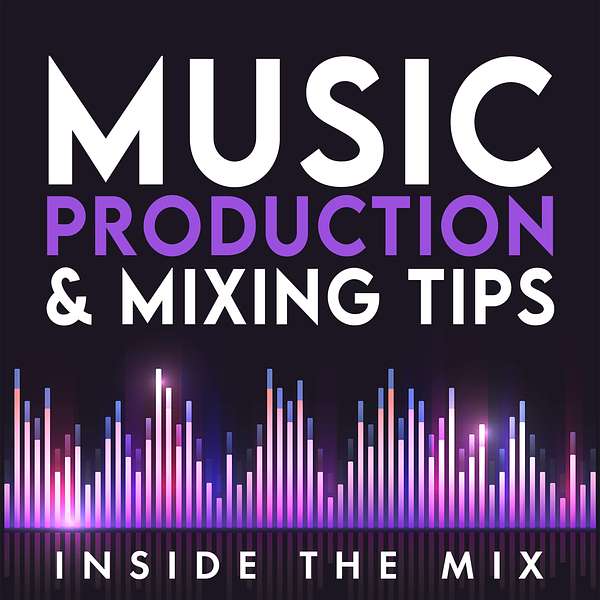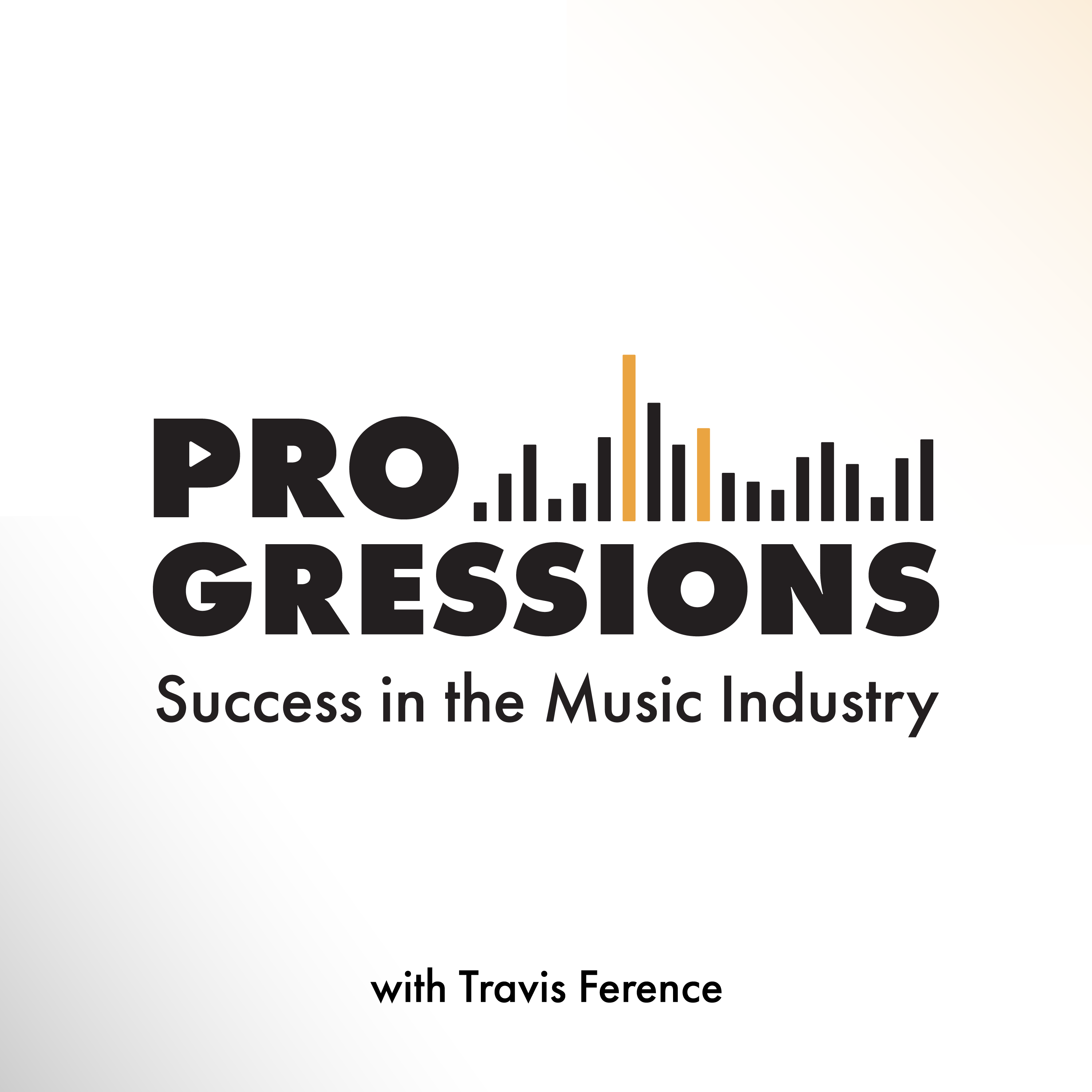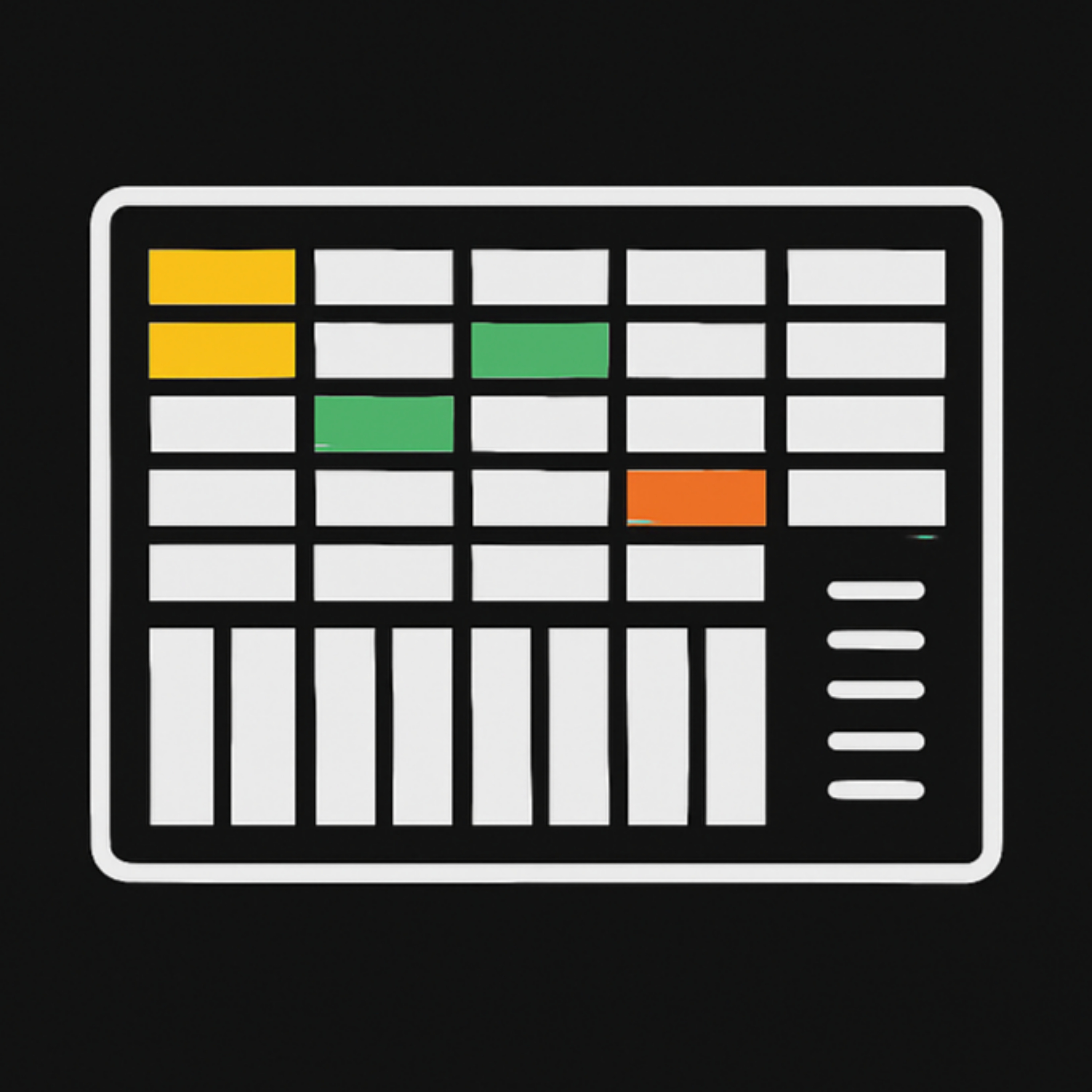
Music Production and Mixing Tips for Beginner Producers and Artists | Inside The Mix
If you're searching for answers on topics such as: How do I make my mixes sound professional? What equipment do I need to start producing music at home? What is the difference between mixing and mastering? What are some of your favourite production tools and techniques? How do I get my music noticed by record labels? Or what are the key elements of an effective music marketing strategy? Either way, you’re my kind of person, and there's something in this podcast for you!
I'm Marc Matthews, and I host the Inside The Mix Podcast. It's the ultimate serial podcast for music production and mixing enthusiasts. Say goodbye to generic interviews and tutorials, because I'm taking things to the next level. Join me as I feature listeners in round table music critiques and offer exclusive one-to-one coaching sessions to kickstart your music production and mixing journey. Prepare for cutting-edge music production tutorials and insightful interviews with Grammy Award-winning audio professionals like Dom Morley (Adele) and Mike Exeter (Black Sabbath). If you're passionate about music production and mixing like me, Inside The Mix is the podcast you can't afford to miss!
Start with this audience-favourite episode: #175: What's the Secret to Mixing Without Muddiness? Achieving Clarity and Dynamics in a Mix
Thanks for listening!
Music Production and Mixing Tips for Beginner Producers and Artists | Inside The Mix
#60: The Most Important Lessons Learned in 2022
To download the FREE Producer Growth Scorecard, click here: https://www.synthmusicmastering.com/free-resources
Want to join a community of artists and music enthusiasts and gain access to exclusive Inside The Mix Podcast content? Join the podcast Facebook community group here: Inside The Mix Podcast Community
Are you thinking about starting a podcast or need help growing your audience? Check out the Podcast Business School: https://www.podcastingbusiness.school/a/2147490930/Hw6eEPeg
Start recording your own podcast today using Riverside FM here: Riverside FM
Ways to connect with Marc:
Listener Feedback Survey - tell me what YOU want in 2026
Radio-ready mixes start here - get the FREE weekly tips
Book your FREE Music Breakthrough Strategy Call
Follow Marc's Socials:
Instagram | YouTube | Synth Music Mastering
Thanks for listening!!
Try Riverside for FREE
You are listening to the Inside The Mix podcast with your host, Mark Matthews. Hello and welcome to the Inside the Mix podcast. I'm Mark Matthews, your host, musician, producer, and mix and mastering engineer. You've come to the right place if you want to know more about your favorite synth music artist, music, engineering and production, songwriting and the music industry. I've been writing, producing, mixing, and mastering music for over 15 years, and I wanna share what I. With you. Hey folks, if you are a new Inside The Mix podcast listener, welcome and don't forget to hit that subscribe button. And if you're a returning listener, welcome back. This episode is dedicated to what I perceive to be the top four lessons learned in 2022 from the amazing producers, musicians, and audio engineers and audio professionals that I've had the pleasure of chatting to this year. So essentially, the Inside the Mix podcast is, uh, is an advice buffet from which you can pick what works for you. And this episode is gonna s. That buffet. So let's dive into the top four lessons learned in 2022. So here we go. Lesson one. What is pre-production and why is it important for a songwriter? So this first lesson is taken from my conversation with the brilliant Michael Oakley. So why is pre-production so important in songwriting? So how often do you waste time? Just scrolling through patches for the perfect sound, only to look at the clock two hours. With little progress made. And how many times have you created a new session in your d a w on wasted time, creating tracks, channel strips, and loading software instruments and plugins, while the simple solution is to complete pre-production. So first, identify your favorite three software instruments and start or favorite, your favorite patches. Favorite used twice there. There we go. This will stop pat surfing. So you'll be able to then load the software instrument and quickly sketch out an idea without getting hung up on the sound. Secondly, create a session template of the key instruments you need to start songwriting. For example, drums based since effects, depending on what you're creating and load this every time you start a songwriting session again, you're removing that time suck and that barrier to songwriting. So if you're like this, then you'll love episode 54 featuring Michael Oakley. So that's Michael Oakley music production, how to Get Started, part one and part two is brilliant as well. So you should probably check that out as well. So next we have lesson two. So splurging, what other qualities of a good songwriter? So this next lesson is taken from my conversation with Simon Quinn of the Safety Word. So in theory, why you? Waste time completing songs that don't have potential. And I think it's fair to say that a lot of songwriters or our songwriters, we often write songs that we don't use. Now you can break those down into sample pack's, extra income or sync or, or various other forms. I'm not gonna go into now, for example, but I think the key is not to waste time on songs that don't have potential. So with that being said, the solution is splurging or writing in this instance, eight bar loops. Now, eight bar is, uh, is a number that has been picked out here in particular, but I suppose you could use any, you could do 16 bar, I would probably say eight bar is the minimum from what I've experie. So you could write eight bar loops in dedicated sessions and review these loops at a later date. The idea is not to let time limit your creativity as well. So if you only have 30 minutes, see what you can knock out in 30 minutes. Write as many eight bar loops as you can and save them in an ideas folder. For review one week later. So the idea is to let their ideas marinate. I've used idea a lot there, so to speak, with time, and you can make a decision with fresh ears whether the idea is worth pursuing. So if it's worth pursuing, you then move it into a yes folder for action. The idea being that you're gonna have a lot of song ideas starts that you're gonna review at a later date and decide whether to carry. The ideas that you don't use, once again, going back you could break them down as a sample packs for extra income, um, or anything along those lines, or just royalty free audio or royalty, three loops that you put out for promotional purposes. I've done this and it works really, really well. So if you like this, then you'll love episode 57. write songs faster. Key tips for better songwriting with the safety word. Moving on to lesson three. So what techniques are used for audio compression? So next up is, uh, a lesson or rather reinforcement of a mixing technique. Discussed with Grammy award-winning mix engineer Don Morley. So in theory, why shouldn't you just slap a compressor on a tractor control volume now in this conversation? Um, well, well, it's easy to quickly reach for a compressor to control level and performance. And once upon a time, this was the only option. So this is described by Dom in, in the interview itself. However, we now have automation at our fingertips. So we're able to automate the level of a performance and create a consistent and balanced overall level. We can automate the level using a game plugin, and in Logic Pro is possible to actually automate gain in the editor window. So you can go in for the actual individual words. Um, if you, it is a vocal performance or the phrasing, if it's another instrument, and actually manipulate that gain at quite a granular level and possibly easier than automating. I'm sure you could probably do it in other dws.. So in theory, this, this workflow, workflow rather, will take the load off a compressor and we can then use the compressor to manipulate tone, for example, if you want parallel compression or something along those lines. Or if you just wanna run your audio through a compressor to get that sound, um, from that compressor. So if you like this, then you'll live episode 56. What makes a mix sound professional with Don Moley? Okay folks, here we go. This is lesson four, why Your Mix Isn't working. So this is the final lesson and this is taken from my conversation with sunglasses kid. So if you ever consider that, it might not be the mix that is the problem. So how often do you hit a mix? Stumbling blocks, something that just isn't working quite right. Now, I've experienced this as we all have as songwriters and music producers. So you've spent hours binge editing and tweaking levels of parameters, but it's not just working. And what you'll find is you'll get to the point whereby you're making changes that are detrimental to your mix, but well have you considered that it might be the composition and arrangement rather than the mix. So sunglasses kid recommends or raises this point in terms of you might have someone send a mix over to you or you've sent a mix out saying This mix just isn't quite working. And actually it's the arrangement. It could be that the transition doesn't work or it's missing. Maybe the composition needs to change in tempo or chord structure, or notes clashing due to unintentional dissonance. Now, I say unintentional because there could be a creative choice. Remember to break the rules. You have to know the rules. Is it your instrument choice? Have you introduced too many or too few instruments? Relevance or simply, is your arrangement boring? It sounds harsh, but it could be the fact I can go on, but hopefully you get the.. So if you get to the point whereby you, you're, you're racking your brains, you just cannot get this mix quite right, maybe you need to look at the arrangement and composition of your idea of your song. So in this situation, there's a few things you can do. You could take a break and work on a different project before returning with fresh ears., ask a peer for feedback and critique on the arrangement, or simply change an instrument and chord and see what happens. Just mix things up. That's not a, uh, a finite list. There are many ways or many different things you can do. And if you listen through the episode of the podcast, they, um, the individuals that I talk to will release or reveal many different ways that you can go on and sort of break through that, that barrier. So if you like this, then you'll love episode 46, sunglasses, kid. How to Turn Your Ideas into. Okay, that's it for this episode, folks. It's a short but sweet one. That's a gear up for 2023. Okay, so those are the top four lessons learned in 2022. And as I mentioned in the beginning, the podcast is an advice and one person's rubbish is another person's treasure, so to speak. So take what you can and apply the tips and tricks in your latest projects. So I said it at the beginning of this little spiel here it is a short episode while I gear up for 2023. So there's a lot of exciting things that are gonna be rolled out via the podcast or through the podcast. Um, there's a new website that's gonna be released shortly, or rather is released. There are gonna be additional courses related to that. There's gonna be a whole online community within that particular website. There are gonna be options for you to join in with the podcast itself and feature on the podcast with your music and discussions surrounding your music. Obviously the Synth PALS pub continues to grow and is, and is developing amazingly. Um, so it's a very exciting time for the podcast and there's gonna be a lot featured within. So keep your eyes peeled. Thanks for your support throughout 2022 and 2023 is set to be an amazing. Hello, inside the mix listeners. I'm the Vapor Ray artist Tata coming at you from Sweden. My favorite episode of the Inside the Mix podcast is episode 42 with year of the Fall, cuz they have such an open chat about how they go about creating music collaboratively. It really inspired me to reach for more global collabs and to not be too picky when it comes to where I find my inspiration for my music. Go listen to it yourselves and get inspired.
Podcasts we love
Check out these other fine podcasts recommended by us, not an algorithm.

Progressions: Success in the Music Industry
Travis Ference
Let's Talk Synth... Seriously!!
UAPretrosynth
The Savvy Producer | Productivity and Efficiency in Music Production
Marsden Mastering
Your Morning Coffee Podcast
Jay Gilbert & Mike Etchart
Recording Studio Rockstars
Lij Shaw
Master Your Mix Podcast
Mike Indovina
